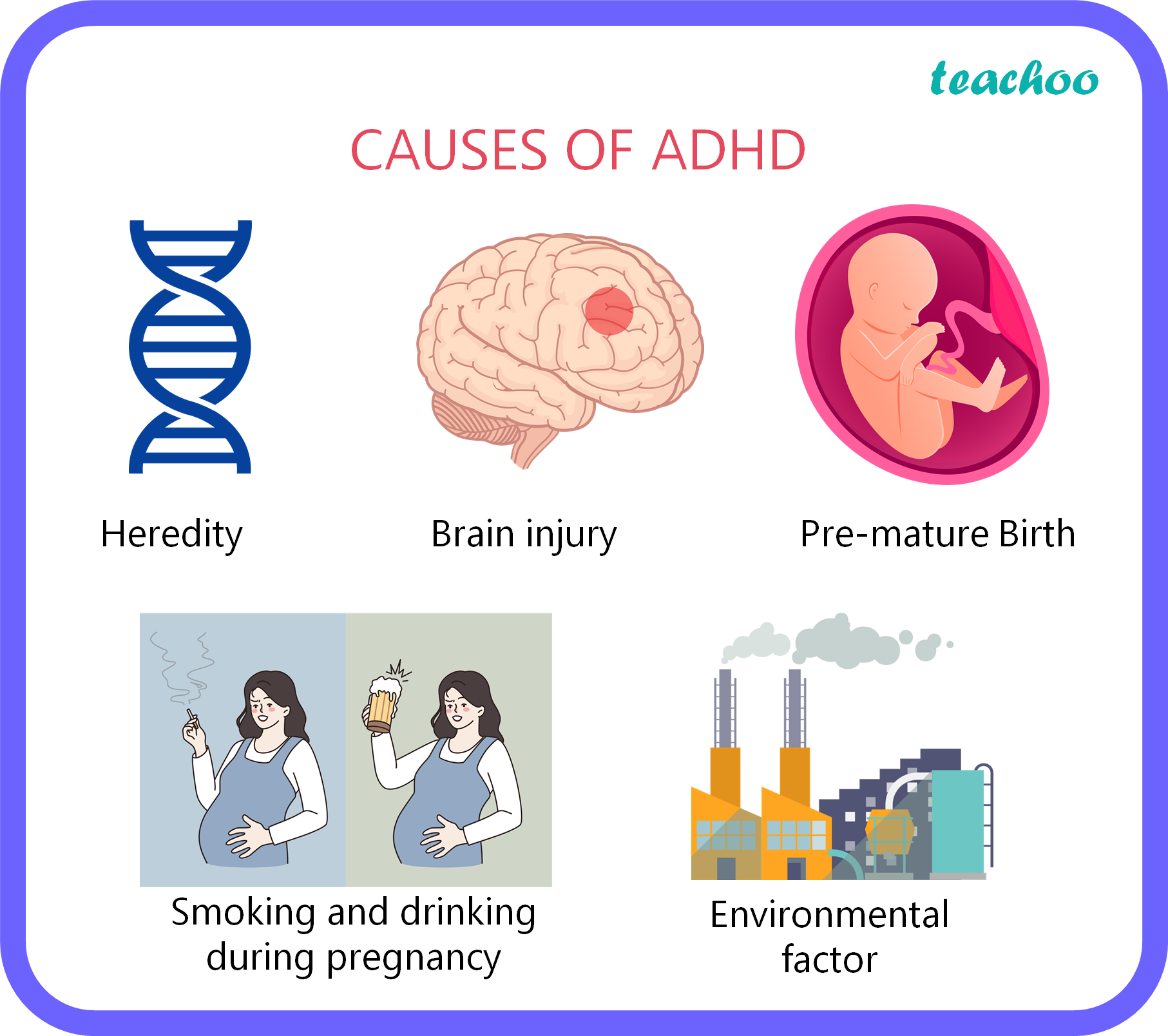The causes of Attention Deficit Hyperactivity Disorder (ADHD) are complex and multifactorial, involving a combination of genetic, neurological, environmental, and prenatal factors. It’s essential to note that ADHD is likely influenced by a combination of these factors rather than a single, clear cause. Here’s a more in-depth look at the potential causes of ADHD:
- Genetic Factors:
- Hereditary Component: Research strongly supports a genetic component in ADHD. Individuals with a family history of ADHD are at a higher risk of developing the disorder.
- Candidate Genes: Various genes have been identified as potential contributors to ADHD. These genes are associated with neurotransmitter regulation, dopamine receptors, and other neurodevelopmental processes.
- Neurobiological Factors:
- Dopamine Dysfunction: One of the leading theories suggests that imbalances in the neurotransmitter dopamine play a significant role in ADHD. Dopamine is involved in the regulation of attention, motivation, and impulse control.
- Brain Structure and Function: Studies using neuroimaging techniques have identified structural and functional differences in the brains of individuals with ADHD. These differences often involve areas related to attention, executive functions, and impulse control.
- Prenatal and Perinatal Factors:
- Maternal Smoking and Substance Use: Exposure to tobacco smoke and certain substances during pregnancy has been linked to an increased risk of ADHD in offspring.
- Premature Birth and Low Birth Weight: Preterm birth and low birth weight have been associated with a higher likelihood of developing ADHD.
- Environmental Factors:
- Lead Exposure: Some studies suggest a correlation between lead exposure and an increased risk of developing ADHD. Lead is a neurotoxin that can affect brain development.
- Maternal Stress during Pregnancy: High levels of stress during pregnancy may contribute to the development of ADHD in children. Stress hormones can impact fetal brain development.
- Brain Injury and Trauma:
- Head Injuries: Traumatic brain injuries, especially those affecting the frontal lobes, have been implicated in the development of ADHD.
- Early Childhood Trauma: Adverse childhood experiences, including trauma and neglect, may increase the risk of developing ADHD symptoms.
- Nutritional Factors:
- Dietary Factors: While controversial, some studies have explored the relationship between certain dietary factors and ADHD. Some evidence suggests that a diet rich in omega-3 fatty acids and low in artificial additives may have a positive impact.
It’s important to emphasize that ADHD is likely influenced by a combination of these factors, and their interplay is still not fully understood. Additionally, the manifestation of ADHD is heterogeneous, with different individuals experiencing varying combinations and degrees of symptoms.
Diagnosing and understanding ADHD requires a comprehensive evaluation, often involving clinical interviews, behavioral assessments, and consideration of genetic and environmental factors. Effective management typically involves a multimodal approach, combining behavioral interventions, educational support, and, in some cases, medication.

